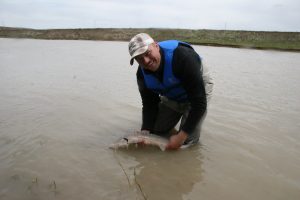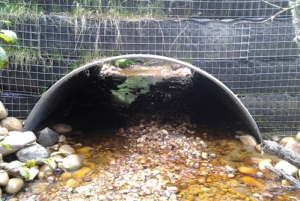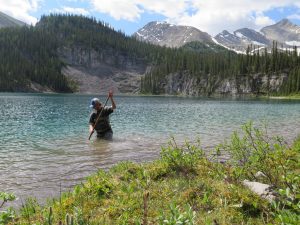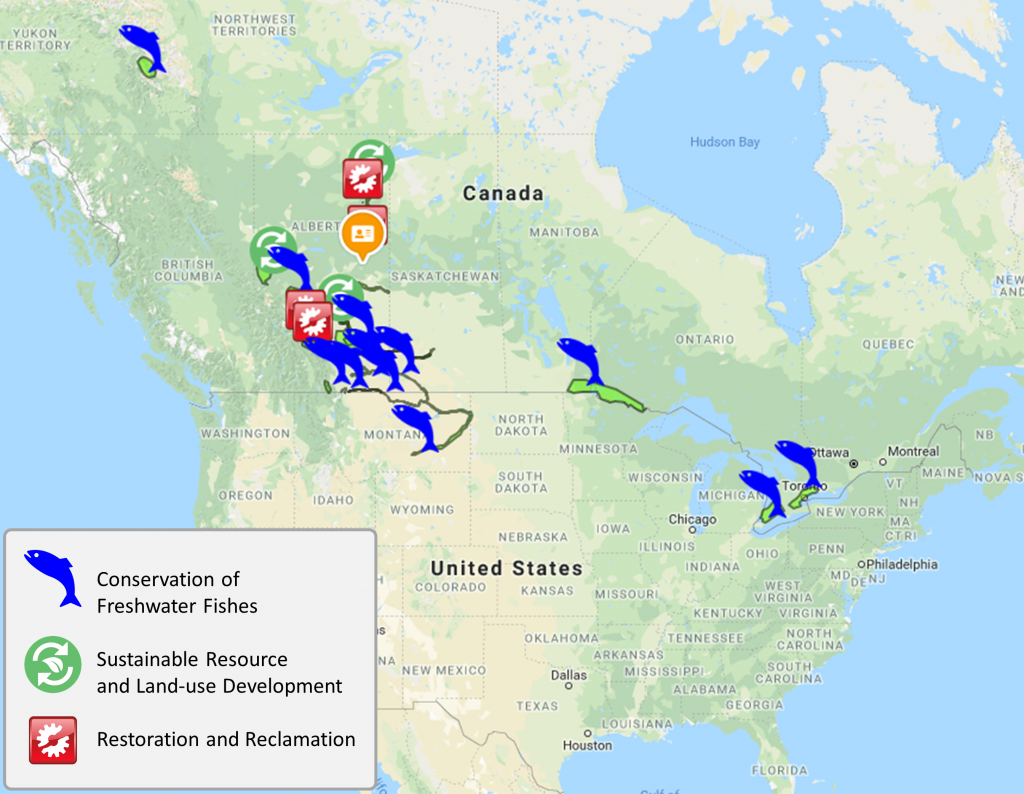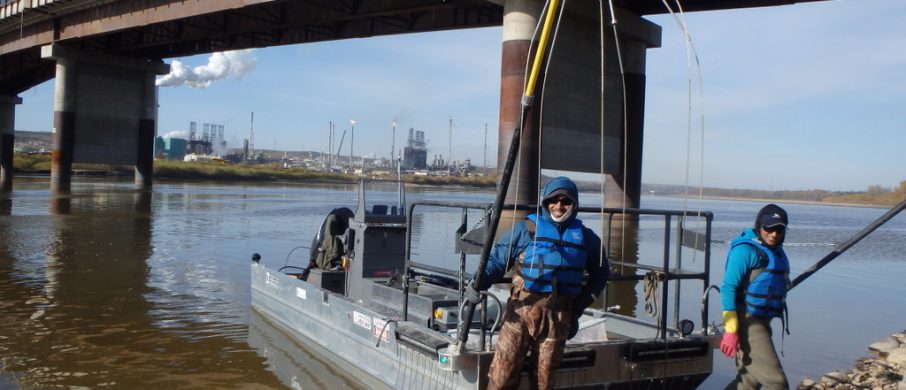 Creating sustainable resource development and land-use practices
Creating sustainable resource development and land-use practices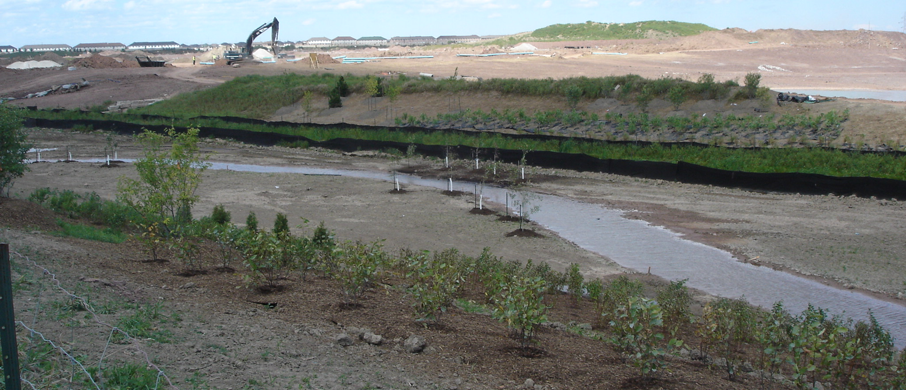 Developing effective restoration and reclamation programs
Developing effective restoration and reclamation programs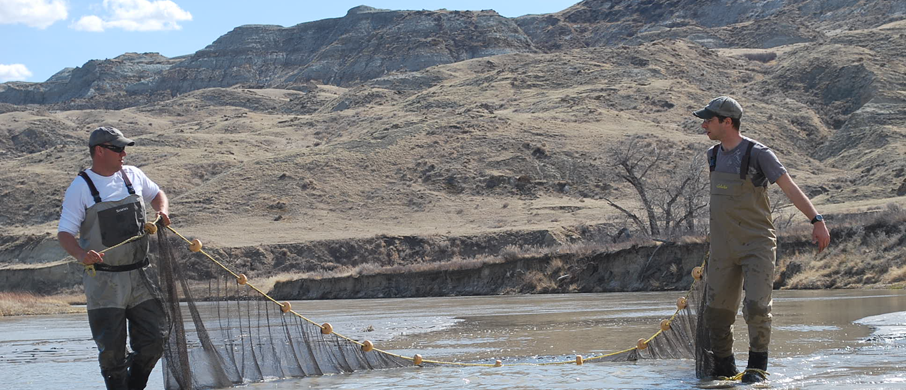 Research on freshwater biodiversity, including species at risk
Research on freshwater biodiversity, including species at risk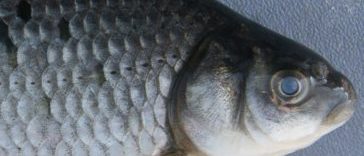 Assessing the impacts of climate change and invasive species on aquatic communities
Assessing the impacts of climate change and invasive species on aquatic communities
Conservation of
Freshwater Fishes
Freshwater fishes are among the most endangered taxa globally. We strive to understand the mechanisms related to the loss of freshwater fishes, particularly in relation to anthropogenic disturbance, such as land-use and climate change, alterations to flow regime (ecohydrology), and impacts from invasive species.
Sustainable Resource and
Land-Use Development
Balancing the societal needs for resources (e.g. energy, timber) and land-use with environmental sustainability can be challenging. We help address these challenges by assessing the impacts of resource and land-use development on aquatic ecosystems. Past projects include: assessing metal contamination in aquatic foodwebs, impacts of oil spills on aquatic systems, and determining impacts of road crossings on freshwater biodiversity.
Restoration and
Reclamation
Developing research to assist decision-makers in creating cost-effective, robust restoration and reclamation activities. In particular we are working on developing tools to improve species recovery plans, assessing habitat offsets in freshwater ecosystems, determining the efficacy of fish stocking as a restoration activity and developing landuse and conservation plans that maximize freshwater biodiversity.
Lab News

Congratulations to Jessica Serbu, Vince St. Louis and team for being named ‘Most Viewed’ on our article on climate change (see info)!

Congratulations to Sam Fischer for being one of ten articles listed for the Southwood Prize by the Journal of Applied Ecology!

Congratulations to Macs MacLeod and Megan Edgar on successfully defending their MSc theses!

Three new articles on habitat banking and offsetting accepted! Check them out!

Congratulations to Jacquie Pallard on successfully defending her MSc!

